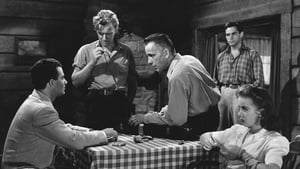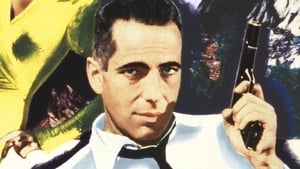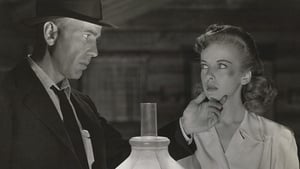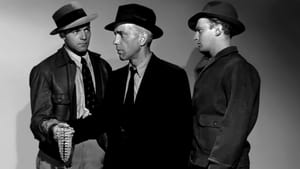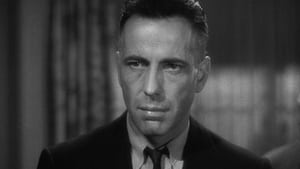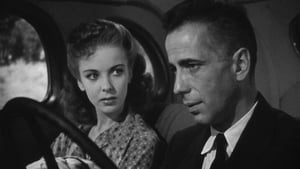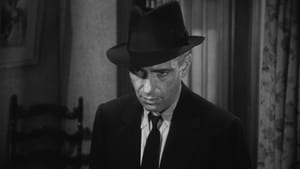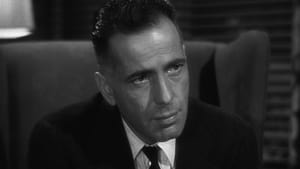Contact: [email protected]
Video Sources 0 Views
- Watch trailer
- High Sierra

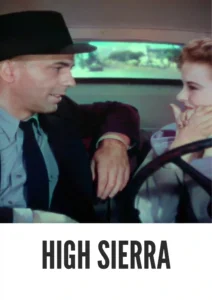
Synopsis
Table of Contents
ToggleReview: High Sierra (1941) – A Classic Crime Drama Ahead of Its Time

Introduction
High Sierra, released in 1941, is a landmark crime drama directed by Raoul Walsh that stands as a pivotal work in the film noir genre. Renowned for its gritty realism, nuanced characters, and groundbreaking cinematography, this classic film continues to captivate audiences with its timeless exploration of crime, redemption, and the human condition. In this review, we’ll delve into the enduring legacy of High Sierra and its lasting impact on cinema.
Check The Full Colorized Movies List
Check Our Colorized Movies Trailer Channel
Understanding High Sierra (1941): Director, Cast, and Genre
Directed by Raoul Walsh, High Sierra features an outstanding cast led by Humphrey Bogart in one of his most iconic roles. The film belongs to the crime drama genre, known for its dark themes, morally ambiguous characters, and atmospheric cinematography.
Exploring the World of High Sierra (1941): Plot and Characters
High Sierra follows the story of Roy Earle, a hardened criminal released from prison who is recruited for one last heist. As Roy navigates the treacherous world of organized crime, he forms a deep bond with a young woman named Marie, leading him to confront his own mortality and seek redemption in the face of overwhelming odds.
The Art of Film Colorization
While High Sierra was originally filmed in black and white, its early colorized version adds a new layer of depth to its atmospheric visuals. The colorization process enhances the film’s gritty realism and captures the nuances of its characters with striking clarity.
Early Colored Films: A Brief History
The history of early colored films is marked by innovation and experimentation as filmmakers sought to enhance the visual appeal of their movies. From hand-tinted frames to pioneering technicolor processes, the evolution of colorization techniques transformed the cinematic landscape, offering audiences a new way to experience the darkness and intensity of film noir.
High Sierra (1941) and Its Early Colored Version
The decision to release High Sierra in a colorized format was made with the intention of immersing audiences in the gritty realism of its urban setting and enhancing the film’s visual impact. While some purists may prefer the original black and white version, the early colorized edition of High Sierra adds a new layer of depth to its atmospheric cinematography and captures the moral ambiguity of its characters with breathtaking clarity.
The Debate Over Film Colorization
The debate over film colorization continues to divide audiences and industry professionals alike. While some argue that colorization breathes new life into classic films and makes them more accessible to modern audiences, others maintain that it compromises the artistic integrity of the original work. As technology advances and filmmaking techniques evolve, the debate over colorization remains a topic of ongoing discussion within the film community.
Examining High Sierra (1941) as an Early Colored Film
Viewing High Sierra in its early colorized iteration offers audiences a fresh perspective on its gritty realism and morally complex characters. The colorization process enhances the film’s atmospheric cinematography and captures the tension and desperation of its criminal underworld with stunning clarity. As viewers are drawn into Roy Earle’s world, they are treated to a visual feast that immerses them in the relentless pursuit of redemption and the complexities of the human condition.
Influence and Legacy: High Sierra (1941)’s Impact on Cinema
High Sierra is widely regarded as a masterpiece of the crime drama genre that continues to influence filmmakers and inspire new generations of cinephiles. Its gritty realism, nuanced characters, and atmospheric cinematography have left an indelible mark on cinema, shaping the way crime thrillers are made and appreciated to this day.
Director’s Cinematic Legacy: Beyond High Sierra (1941)
Raoul Walsh’s directorial legacy extends far beyond High Sierra, encompassing a diverse body of work that includes acclaimed films such as The Roaring Twenties and White Heat. As one of the most respected filmmakers of his generation, Walsh was known for his ability to craft compelling narratives that explored the darker aspects of the human experience with depth and nuance. High Sierra stands as a testament to his talent and creativity, solidifying his reputation as one of the great auteurs of classic Hollywood cinema.
Themes Explored in High Sierra (1941)
At its core, High Sierra explores themes of redemption, mortality, and the pursuit of the American Dream in the face of overwhelming odds. Through its gritty realism and nuanced characters, the film offers a poignant portrayal of the human condition, challenging viewers to confront their own beliefs about right and wrong as they navigate the treacherous world of crime and corruption.
Reception and Controversy Surrounding High Sierra (1941)
Upon its release, High Sierra received widespread critical acclaim for its gritty realism, nuanced characters, and atmospheric cinematography. While the decision to release the film in a colorized format sparked debate among purists, its enduring popularity has cemented its status as a timeless classic of the crime drama genre.
Where to Watch High Sierra (1941) Online
For those eager to experience High Sierra for themselves, the film is readily available on popular streaming platforms such as Amazon Prime Video, Google Play Movies, and iTunes. Whether viewed in its original black and white format or its early colorized iteration, High Sierra offers a cinematic experience that is both gritty and visually stunning.
FAQs About High Sierra (1941)
1. Is High Sierra based on a true story?
No, High Sierra is a fictional film that explores the gritty realism of the criminal underworld through the eyes of its morally complex characters. While the film’s storyline may draw inspiration from real-life events, its characters and plot are works of fiction.
2. Who starred in High Sierra?
High Sierra stars Humphrey Bogart in the role of Roy Earle, a hardened criminal seeking redemption in the face of overwhelming odds. He is supported by a talented ensemble cast, including Ida Lupino, Arthur Kennedy, and Joan Leslie.
3. What is the central message of High Sierra?
At its core, High Sierra explores the themes of redemption, mortality, and the pursuit of the American Dream in the face of overwhelming odds. Through its gritty realism and nuanced characters, the film offers a poignant portrayal of the human condition, challenging viewers to confront their own beliefs about right and wrong as they navigate the treacherous world of crime and corruption.
4. Why was High Sierra released in a colorized format?
The decision to release High Sierra in a colorized format was made with the intention of immersing audiences in the gritty realism of its urban setting and enhancing the film’s visual impact. While some purists may prefer the original black and white version, the early colorized edition of High Sierra adds a new layer of depth to its atmospheric cinematography and captures the moral ambiguity of its characters with breathtaking clarity.
5. What is the legacy of High Sierra?
High Sierra is widely regarded as a masterpiece of the crime drama genre that continues to influence filmmakers and inspire new generations of cinephiles. Its gritty realism, nuanced characters, and atmospheric cinematography have left an indelible mark on cinema, shaping the way crime thrillers are made and appreciated to this day.
6. Are there any sequels or remakes of High Sierra?
No, there have been no official sequels or remakes of High Sierra. However, the film’s enduring popularity has inspired countless reinterpretations and homages in various media. Nonetheless, none have captured the gritty realism and moral complexity of the original 1941 classic.
7. Where can I watch High Sierra online?
For those eager to experience High Sierra for themselves, the film is readily available on popular streaming platforms such as Amazon Prime Video, Google Play Movies, and iTunes. Whether viewed in its original black and white format or its early colorized iteration, High Sierra offers a cinematic experience that is both gritty and visually stunning.
Conclusion
In conclusion, High Sierra (1941) stands as a landmark achievement in the crime drama genre that continues to captivate audiences with its gritty realism, nuanced characters, and atmospheric cinematography. Whether viewed in its original black and white format or its early colorized iteration, Raoul Walsh’s insightful direction and the stellar performances of the cast offer a cinematic experience that is both gripping and visually stunning. As viewers are drawn into Roy Earle’s world, they are treated to a visceral journey that challenges their beliefs about right and wrong and leaves a lasting impact on their understanding of the human condition. High Sierra remains a timeless classic that continues to enthrall and inspire audiences around the world.
